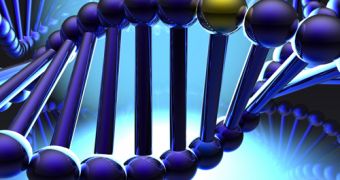One in six people carries a so-called obesity gene. This gene is responsible for the fact that these individuals find it difficult to stick to a diet and shake off excess weight.
A team of specialists led by Rachel Batterham, a scientist presently working with the University College London, now claim to have solved the mystery surrounding this obesity gene, dubbed FTO.
In a recent paper, the researchers explain that a certain FTO variation makes people feel hungry even after they have consumed a substantial meal.
By the looks of it, this is because the bodies of individuals who sport this variation of the obesity gene remain exposed to elevated levels of a hormone named ghrelin, regardless of how much food they ingest.
Ghrelin is a hormone that stimulates hunger, The Verge explains. In the case of people who do not carry the obesity gene, its levels drop immediately after a meal.
As a result, the feeling of hunger is abolished and the person does not feel like they have not had enough and that they must go on eating.
However, individuals whose ghrelin levels remain high even after they have eaten will continue to feel hungry, and will probably not take long to go looking for something to snack on.
The good news is that, according to the researchers, it is possible for overweight and obese individuals to keep ghrelin levels under control, even if genetics has dealt them a bad hand.
“Ghrelin (and therefore hunger) can be reduced by exercise like running and cycling, or by eating a high-protein diet,” specialist Rachel Batterham points out in a statement.
Now that scientists have finally figured out how the obesity gene works, better treatment options for people struggling with their weight are expected to soon follow.
As Rachel Batterham puts it, “This arms us with some important new insights to help in the fight against the obesity pandemic.”

 14 DAY TRIAL //
14 DAY TRIAL //